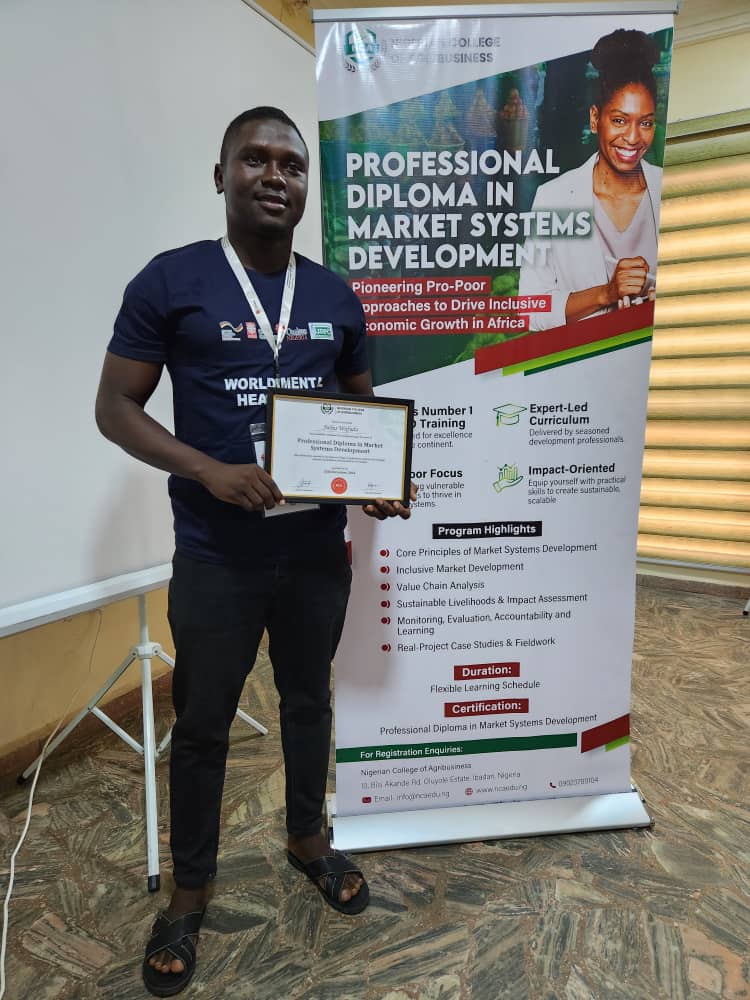Start Dates
Duration
Fees
Learning Activities
Africa’s agricultural resources hold immense potential to transform local economies, reduce food waste, and enhance food security. However, post-harvest losses and inadequate processing facilities continue to impact food quality, accessibility, and market potential. The Professional Diploma in Food Processing and Post-Harvest Management is a comprehensive program designed to equip professionals with the skills, technical knowledge, and operational expertise required to revolutionize Africa’s food processing sector. This unique program focuses on the entire post-harvest value chain, covering processing of various food types, ensuring compliance with food safety standards, and tapping into high-impact enterprise opportunities.
This diploma program offers a dynamic balance between technical mastery and operational skills. It empowers you to optimize food quality, reduce waste, and develop high-value food products that meet local and international standards. Whether you are a new entrepreneur, a technical professional, or an agribusiness enthusiast, this diploma will open doors to innovation and profitability in food processing and post-harvest management.
Upon completing this diploma, participants will earn a Professional Diploma in Food Processing and Post-Harvest Management from the Nigerian College of Agribusiness, recognized for excellence in technical agribusiness training.

Acquire practical skills, cutting-edge knowledge, and globally recognized methodologies tailored to drive success in agribusiness, sustainability, and market-driven solutions.
Build a strong professional network, access new market opportunities, and position yourself as a leader in agriculture, entrepreneurship, and sustainable development
Earn a prestigious certification from the Nigerian College of Agribusiness, recognized for its excellence. This certification not only validates your expertise but also enhances your career prospects in the competitive development and commercial sectors.
Introduction to Food Processing and Post-Harvest Management
In this foundational module, participants will gain an understanding of the importance of food processing in enhancing food quality, value, and shelf-life. They will explore the economic and social impacts of food processing and post-harvest management, particularly in an African context, and examine major challenges and opportunities.
Key Activities in Module 1:
Vegetable and Fruit Processing
This module covers the technical aspects of processing and preserving fruits and vegetables, which are highly perishable yet nutrient-dense. Participants will learn methods for extending the shelf-life of these foods, reducing waste, and creating value-added products like jams, juices, and dehydrated items.
Key Activities in Module 2:
Grains Processing and Milling
In this module, participants will explore the processing of staple grains, including maize, rice, millet, and sorghum. They will learn the specifics of milling, storage, and packaging, as well as grain fortification processes that enhance nutritional value.
Key Activities in Module 3:
Processing of Root and Tuber Crops
Root crops like cassava, yams, and potatoes are essential to African diets. This module covers the technical aspects of processing these starchy staples, including drying, fermenting, and converting them into various food products.
Key Activities in Module 4
Meat and Fish Processing
In this module, participants will dive into the processing of animal protein sources, with an emphasis on African-specific practices and standards. The course covers preservation techniques, storage, and packaging that enhance the safety, quality, and marketability of meat and fish.
Key Activities in Module 5
Food Safety, Certifications and Standards in Food Processing
This critical module emphasizes the importance of quality assurance, food safety, and compliance with certifications and standards. Participants will learn the dynamics of maintaining food safety across processing stages, ensuring that products meet both local and international standards.
Key Activities in Module 6
Packaging and Preservation Technologies
In this module, participants will explore modern packaging and preservation methods that ensure product longevity, appeal, and safety. This module covers packaging techniques that enhance shelf life, prevent contamination, and meet consumer preferences.
Key Activities in Module 7:
Enterprising Opportunities i Food Processing and Post-Harvest Management
This module is designed to help participants to recognize and tap into the business potential within the food processing and post-harvest sectors. With a focus on Africa’s market needs, this module covers emerging trends, enterprise models, and business planning.
Key Activities in Module 8
Technological Innovations and Automation in Food Processing
Participants will learn about the latest technological advancements in food processing, from automation in packaging lines to innovations in food quality testing. This module provides insights into technology-driven efficiencies that can streamline operations and enhance productivity.
Key Activities in Module 9

No other institution in Africa offers such a comprehensive approach to agribusiness and development sector education as the Nigerian College of Agribusiness. We provide a unique blend of academic rigor, practical expertise, and industry connections. Here, you will learn from experienced faculty members who are experts in their fields and deeply engaged with the latest advancements in their industries.
We leverage interdisciplinary knowledge and the latest research to enhance our programs, ensuring they are relevant and impactful. At NCA, you will continuously engage with thought leaders who are constantly shaping the dynamics of their industries and after graduation, you will be a life-long member of a vibrant alumni community that continually foster cross-disciplinary learning and networking.
STEP 1: Complete the Application for Admission Form for the course
STEP 2: A non-refundable application fee of N20,000 applies and will be deducted from the tuition upon enrollment. This is payable into
Zenith Bank
Account Name: Nigerian College of Agribusiness
Account Number: 1228461510
STEP 3: Attach receipt of Application fee with your highest academic credential and submit to: [email protected]
STEP 4: Upon successful evaluation of your application, you will receive your Admission Letter indicating acceptance into the program. The Letter will also contain details of enrollment into the Course.
Click on the link below to fill the application form for this course
Local: N450,000
International Students: $400
Get monthly marketing tips and exclusive discounts straight to your inbox

Our mission is to cultivate a vibrant, sustainable and profitable agribusiness sector that drives economic growth and social progress across Africa and beyond.
We are committed towards educating a new generation of agribusiness sector leaders that will transform the economic fortunes of the African continent
© NCAEDU 2023 All Rights Reserved.